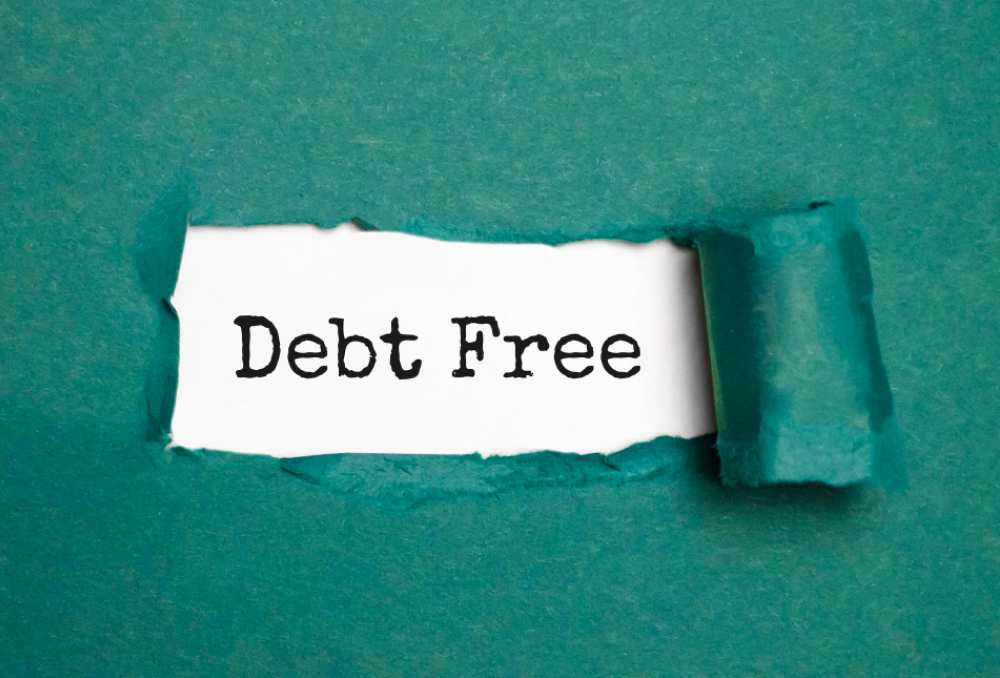With today's volatile economic climate, small businesses are dealing with slimmer margins, rising costs, and unpredictable revenue streams. It's a tough world out there, and for a lot of small business owners, the formerly bright vision of entrepreneurship is now wrapped by one, obvious question: "Can I keep my business afloat on this debt?"
When income falls below overhead, clients pay late, and lenders ask for what you don't have, it's quick to feel trapped. But before flipping out the lights and closing the doors, there's a strong choice many don't consider debt settlement.
For entrepreneurs drowning in high-interest loans, credit lines at their limit, or past-due payments, debt settlement can be a lifeline — lowering what you owe and providing your business some breathing space. Here's the how, and why it may be your best chance to survive.
What Is Debt Settlement, Exactly?
Debt settlement is an activity where a company (or an acting professional firm on its behalf) negotiates with creditors to lower the overall debt amount — usually by a high percentage.
As opposed to refinancing or consolidation, which restructuring or consolidates debt, settlement targets the principal reduction. Creditors do agree to take an amount less than the amount in question in a lump sum or in a structured payment in return for settling the debt.
Example:
If your company has $80,000 in unsecured loans, a debt settlement negotiation could slash the amount to $40,000 — halving your overall obligation.
How Can Debt Settlement Prevent Business Closure?
Here's why debt settlement can be a game-changer:
Reduces the Immediate Financial Burden
Rather than attempting to square unsustainable monthly payments with compounding interest and fees, debt settlement renews what you owe — frequently rendering a mountain of debt a manageable hill. That brings cash flow, which is critical to maintaining operations.
Prevents Bankruptcy
Bankruptcy may erase your debt, but it also drastically harms your credit, public image, and future sources of money. Settlement offers a less intrusive alternative, allowing you to maintain control over your property and escape the long-term effects of filing.
Buys You Time to Rebuild
By stopping collection calls, lawsuits, and additional penalties, debt settlement provides you with the room to breathe to re-shift focus toward stabilizing your business—be that enhancing sales, reducing costs, or shifting your business model.
Saves Vendor and Client Relationships
Contrary to bankruptcy or instantaneous shutdowns, debt settlement enables you to converse in advance with creditors and business partners. This saves your company reputation and can maintain important relationships difficult to restore.
Is Debt Settlement Appropriate for Every Business?
Debt settlement isn't a silver bullet—and it isn't suitable for every business. Consider the following factors:
Good Fit If:
- You have primarily unsecured debt (credit cards, merchant cash advances, personal guarantees).
- You're behind on payments and experiencing aggressive collections.
- Revenue remains available, but not sufficient to meet current obligations.
- You do not wish to go bankrupt and are willing to negotiate lump sums or structured settlements.
Not Ideal If:
- The majority of your debt is secured (e.g., equipment leases, commercial mortgages).
- Your company possesses strong assets and cash flow, whereby creditors will not be so willing to negotiate.
- You cannot afford to make any settlement payments, even scaled-down ones.
In such situations, there may be other options available—such as restructuring, refinancing, or reorganization.
How the Debt Settlement Process Works
Step 1: Assessment
A debt relief company will examine your financials, liabilities, and overall business situation to see if settlement is a reasonable option.
Step 2: Creditor Negotiation
Negotiators will contact lenders and creditors to arrange lowered balances or extended repayment periods. This can be completed in several weeks or months, depending on your creditors and debt burden.
Step 3: Settlement Agreement
After agreement on terms, the company completes the transaction—usually requiring a lump sum payment or structured installment plan.
Step 4: Resolution & Recovery
Once you've made your payments, the debt is listed as "settled," and you're left to rebuild with fewer financial burdens.
Some Myths About Debt Settlement — Debunked
Myth 1:
"Creditors will never accept less than what is owed.” But actually, most creditors would rather take back something rather than nothing. If they think your company may default or become bankrupt, they're likely to be open to negotiating.
Myth 2:
"It's the same as debt consolidation." By no means. Consolidation rolls up debts into a new loan — settlement reduces debt.
Myth 3:
"It will ruin my credit score forever." Although it might affect your credit temporarily, settlement tends to be less harmful than default, lawsuits, or bankruptcy.
Final Thoughts: Saving Your Business Starts With a Step
If you find yourself on the brink of shutting your company under crushing financial stress, debt settlement might be your path out. It doesn't have to be the end for you.
It's not a simple choice — but it is a smart one if the other option is to shut down altogether. It’s not too late and you are not alone. There’s help available. With expert assistance, a good plan, and the proper negotiations, you can get rid of the burden of overwhelming debt and give your business a second chance.






